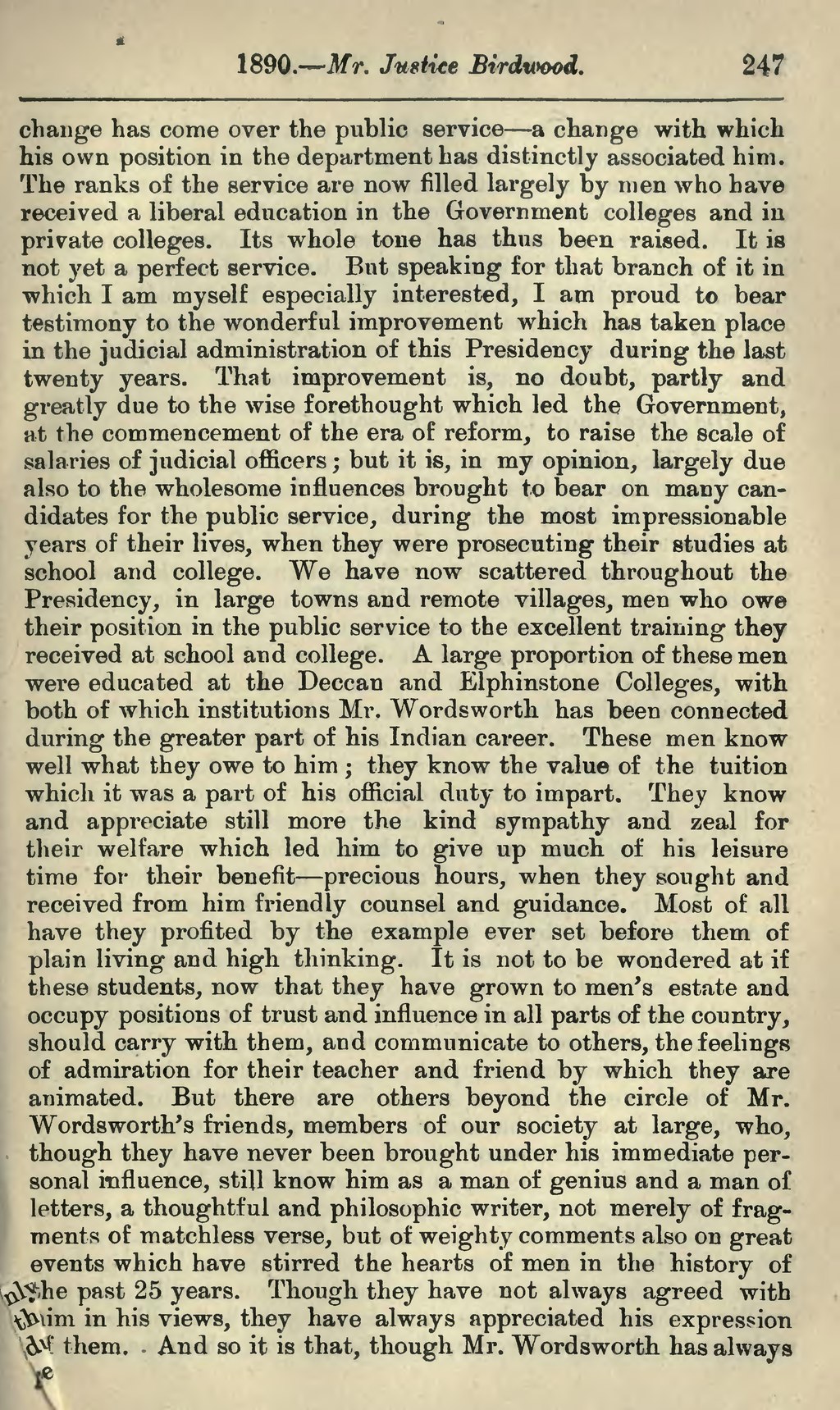change has come over the public service—a change with which his own position in the department has distinctly associated him. The ranks of the service are now filled largely by men who have received a liberal education in the Government colleges and in private colleges. Its whole tone has thus been raised. It is not yet a perfect service. But speaking for that branch of it in which I am myself especially interested, I am proud to bear testimony to the wonderful improvement which has taken place in the judicial administration of this Presidency during the last twenty years. That improvement is, no doubt, partly and greatly due to the wise forethought which led the Government, at the commencement of the era of reform, to raise the scale of salaries of judicial officers; but it is, in my opinion, largely due also to the wholesome influences brought to bear on many candidates for the public service, during the most impressionable years of their lives, when they were prosecuting their studies at school and college. We have now scattered throughout the Presidency, in large towns and remote villages, men who owe their position in the public service to the excellent training they received at school and college. A large proportion of these men were educated at the Deccan and Elphinstone Colleges, with both of which institutions Mr. Wordsworth has been connected during the greater part of his Indian career. These men know well what they owe to him; they know the value of the tuition which it was a part of his official duty to impart. They know and appreciate still more the kind sympathy and zeal for their welfare which led him to give up much of his leisure time for their benefit—precious hours, when they sought and received from him friendly counsel and guidance. Most of all have they profited by the example ever set before them of plain living and high thinking. It is not to be wondered at if these students, now that they have grown to men's estate and occupy positions of trust and influence in all parts of the country, should carry with them, and communicate to others, the feelings of admiration for their teacher and friend by which they are animated. But there are others beyond the circle of Mr. Wordsworth's friends, members of our society at large, who, though they have never been brought under his immediate personal influence, still know him as a man of genius and a man of letters, a thoughtful and philosophic writer, not merely of fragments of matchless verse, but of weighty comments also on great events which have stirred the hearts of men in the history of the past 25 years. Though they have not always agreed with him in his views, they have always appreciated his expression of them. And so it is that, though Mr. Wordsworth has always
